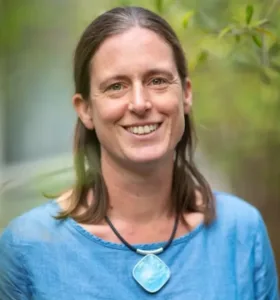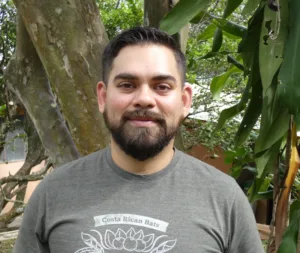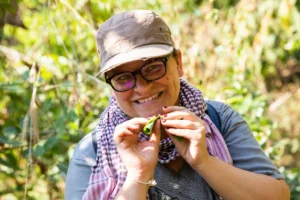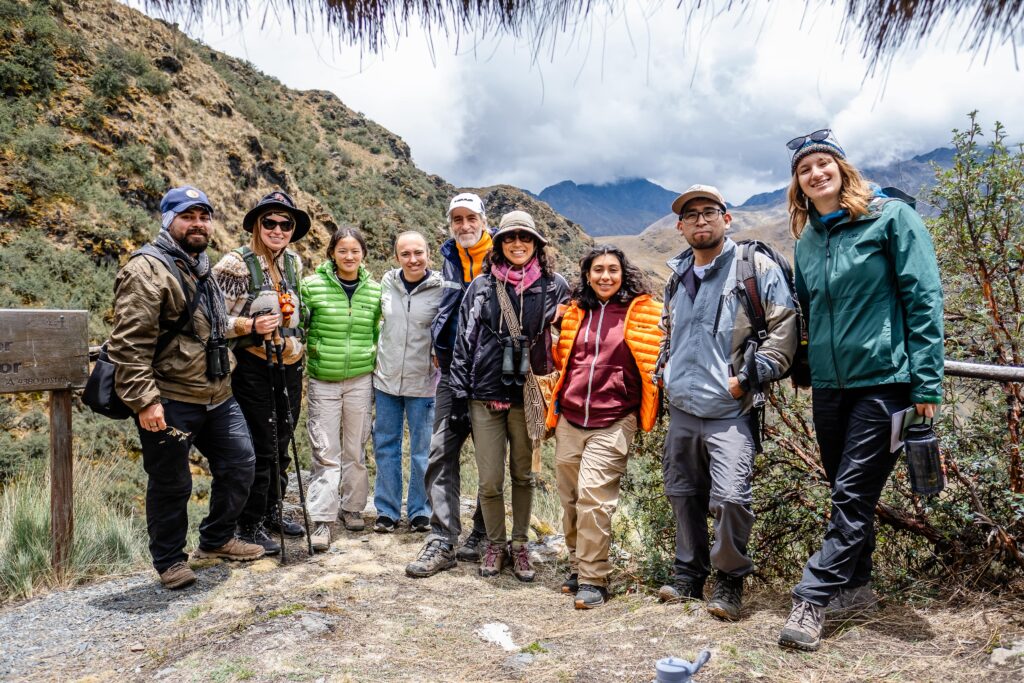Peru
Study Abroad in Peru
Have you ever wanted to live in the Amazon, take a riverboat expedition to survey rare wildlife, or visit the ancient cities of the Andean highlands? Our program in Peru is based in the rich ecosystems of the Amazon, with excursions to the highlands of the Andes, visits with Indigenous communities, and meetings with diverse shareholders. The forests of the Peruvian Amazon are increasingly under threat from climate change, rapid development, and extractive activities like logging and mining. Our research here provides important insights into the fate of the Amazon and all the life that depends on it. Courses and fieldwork focus on key environmental issues such as climate change, biodiversity conservation, environmental ethics and justice, and sustainable livelihoods.
Programs
The Living Amazon
See Program Costs
Program Costs
- Tuition
- Room & Board
- Total
Amazonian Plant Biodiversity and Traditional Medicine
See Program Costs
Program Costs
- Tuition
- Room & Board
- Total
Where You'll be Living
The Peru Center is an oasis of calming nature, while a short walk from the bustling town of Tarapoto, gateway to Amazon adventures. The Center is connected by a web of pathways lined with flowers, medicinal herbs, and rows of stone terraces teeming with native plant species. Students have access to wooded hiking trails through protected areas, as well as quiet lofts and rocking-chair-patios offering panoramic views of the Escalera mountain range.
- Two-floor bungalows with balconies and full bathrooms housing 4-students
- Traditional maloca, an ancestral long house used by the Amazon’s indigenous people
- Laboratory with stone worktables, 5 sinks, and shelves stocked with scientific equipment
- Family-style 25-foot dining table for communal meals prepared by local cooking staff
- Private student lounge spaces with sweeping forest views
- Open air classroom building with library of western and indigenous texts
- Gyms and running routes in surrounding neighborhood
- Kitchenettes, laundry facilities, and the center’s traditional bread oven
Know before you go
Click on each dropdown to explore details about life at this Center, and determine if it’s the right fit for you.
Program experience
Living Conditions & Daily Life
Students participate in structured classes and field activities on weekdays (typically 8 AM–5 PM), with evenings and most weekends free. A daily curfew is enforced throughout the program, except during two designated free weekends and mid-semester break, when the SFS Center is closed, and independent travel is required. Students may choose to remain at the center on free weekends, in which case all center policies and curfews still apply.
Housing is shared (4–6 people per room), with weekday and Saturday meals provided by program staff. Students are responsible for preparing their own meals on Sundays. While a student kitchen is available, regular meal prep is not feasible due to the program schedule.
Physical Readiness
Fieldwork includes hiking (1–3 hours) in tropical rainforests, cloud forests, and mountainous regions at elevations up to 12,000 feet. Activities also include visits to farms, Indigenous communities, and conservation sites. Students should expect uneven terrain, steep inclines, and rapidly shifting weather—from high humidity and rain to cooler temperatures at altitude. The SFS Center is located on steep terrain with inclines and steps, limiting accessibility for individuals with mobility impairments or certain health conditions.
Travel & Transitions
The program is based in Tarapoto, with weekly travel to field sites via bus or plane. Travel often involves long, winding bus rides and occasional overnight stays. Students also visit Cusco and other locations, requiring flexibility and adaptability to new environments and altitudes.
Location & Culture
Program Location & Natural Environment
Tarapoto is a vibrant ecotourism hub in north-central Peru. Students have easy access to local amenities—markets, cafes, pharmacies, and shops—just a 10-minute walk or tuk-tuk ride from the center. Field sites offer daily sensory immersion in Peru’s lush ecosystems, with routine encounters with monkeys, reptiles, spiders, scorpions, and other local fauna.
Cultural & Linguistic Differences
Peruvian culture blends Indigenous traditions and a strong Catholic influence. Conservative dress is expected when engaging with the local community (covered shoulders, midriffs, longer shorts and dresses, etc.). Spanish is the primary language; English is less common in rural areas. No prior Spanish proficiency is required, but basic skills enhance daily interactions. Language classes are provided for beginners through advanced learners.
health
Allergies & Dietary Preferences
Peruvian cuisine often features starches (potatoes, rice), fruits, vegetables, and proteins like chicken and pork. Students with allergies or dietary restrictions should communicate their needs early, especially since rural alternatives may be limited. Food providers outside the program typically do not speak English. A student kitchen is available, but self-catering is not practical for most meals due to time constraints.
Cross-contamination accommodations for advanced allergies abroad may not be feasible. Students with severe or life-threatening allergies and/or strict dietary requirements must consult with medical professionals and [email protected] before applying.
Required Vaccinations & Health Care
SFS requires all students to obtain the Yellow Fever vaccination and Rabies pre-exposure series a minimum of 2 weeks before departure. Malaria prophylaxis is recommended for 10 days of potential exposure during a field excursion to a malaria region. For additional recommendations, consultation with a travel medicine professional is strongly advised before departure.
Access to medical care in remote areas may be delayed up to 24 hours. Basic medical services are 10 minutes away; advanced care is approximately two hours away. In severe emergencies, students may be evacuated to Lima.
Routine in-person medical and counseling services are not feasible during the program. Students must bring a full supply of any prescription medications, including psychotropic medications, for the entire duration of the program, as local refills may not be available without prior arrangements.
PRogram Costs
Study abroad is an investment in yourself – you’ll return home with new experiences, skills, knowledge, and friendships that will stay with you for the rest of your life. SFS program costs cover a variety of expenses, including:
- Pre-program advising and on-site orientation
- Tuition and research fees
- Housing at the field station and on excursions
- Daily meals and snacks
- Airport transfers (for arrival/departure)
- Field excursions and cultural activities
- Student success and wellness team on site
- 24/7 mental health and well-being support
- Emergency evacuation and repatriation insurance
- Official transcript processing
Financial Aid
We know cost can be one of the biggest barriers to studying abroad. At SFS, we’re committed to making our programs accessible to students which is why we award a generous amount in need-based financial aid each year. Our Admissions Team has worked with thousands of students and are here to answer your questions about the SFS aid process, aid available through your home school, and funding from external sources.
SFS Financial Aid: Need-based aid packages typically consist of a combination of scholarships, grants, and zero- and low-interest loans. SFS matches Federal Pell Grant funding for students applying to an SFS semester program.
Home School Aid: Be sure to ask your home school study abroad office or financial aid office what financial aid resources might be available to support your study abroad experience.
External Funding Opportunities: Organizations such as the Fund for Education Abroad or the Gilman International Scholarship Program award scholarships to students going abroad. These can be a great opportunity to reduce the cost of your program even more.
Research
Research at the SFS Center for Amazon Studies focuses on biodiversity conservation and ecosystem protection in the face of resource extraction, unrestricted infrastructure development, and the inequitable distribution of environmental benefits. Students and faculty engage with local community members, Indigenous groups, land managers, agriculturalists, conservation organizations, and fellow researchers. As the only rainforest of its size left on the planet, the Amazon harbors unmatched biodiversity and carbon sequestration, and the success of conservation efforts here has both regional and global implications.
Our research focuses primarily on the following themes:
- Climate change
- Forest and soil ecology
- Perceptions and impacts of development in the Amazon
- Rural livelihoods and land use
- Natural resource management
- Forest health and recovery
- Sustainable use of non-timber forest products
Community
SFS develops our research plans based on the environmental issues faced by the community and local ecosystems. Throughout the program, students interact with local residents through community mingas (work projects), our recycling program, local festivals, and sporting events. The Center is a short walk or taxi ride to downtown Tarapoto, the third largest city in the Amazon, and the province’s culinary and cultural capital. Students enjoy a variety of museums, parks, and a vibrant nightlife offering the Amazon’s most iconic and increasingly global cuisine, which blends indigenous culture, European technique, and Japanese ingredients. Tarapoto is also home to the Universidad Nacional de San Martín, a leading research university for rainforest biodiversity.
At the end of each semester program, we host a Community Research Night where select students will present their research findings to the community. SFS research data is shared with communities, local NGOs, and the Peruvian government.
Meet the Peru Team




Ricardo “Mapache” Ignacio Sanchez Calderon





